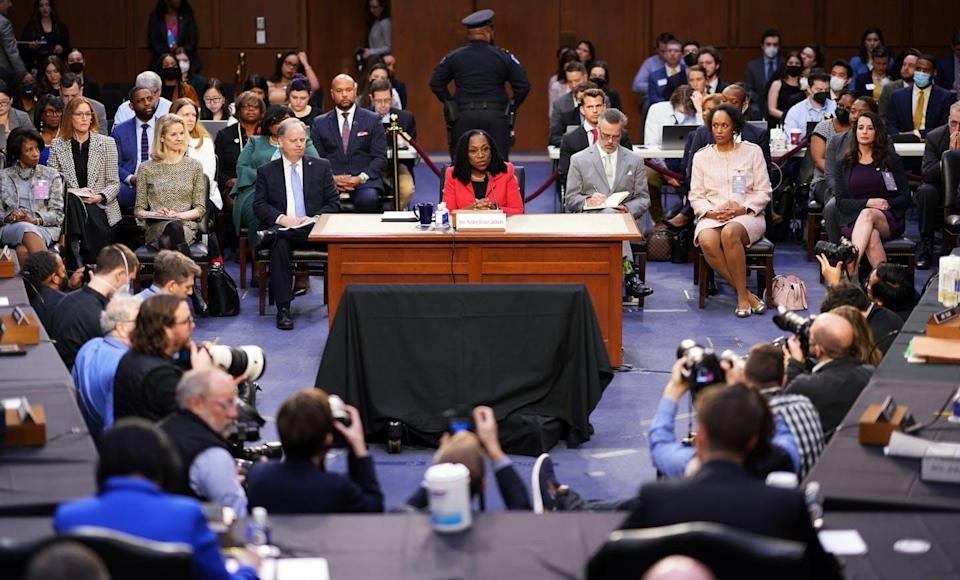The White House was in a frenzy this past March in preparation for a new member of the U.S. Supreme Court. Judge Ketanji Brown Jackson, nominated by President Biden, is set to replace Justice Stephen G. Breyer. And on April 7th, history was made as Jackson was confirmed by the U.S. Senate to become the first black woman justice on the Supreme Court. She will also uphold the three-member liberal minority in a court that is controlled by six conservative justices.
When Judge Jackson’s Senate confirmation hearings began on March 2, Democrats praised Jackson’s career and nomination. Upon introducing herself, Jackson emphasized her judicial temperament, stating, “I decide cases from a neutral posture. I evaluate the facts, and I interpret and apply the law to the facts of the case before me, without fear or favor, consistent with my judicial oath.” Throughout the week, Jackson maintained herself and answered questions from both Democrats and Republicans, despite the backlash she faced from many Republican senators.
While Jackson’s hearings caused upset among Republicans, senators were able to agree on the momentous nature of her nomination. Senate Judiciary Committee Chair Dick Durbin of Illinois stated, “Not a single justice has been a Black woman. You, Judge Jackson, can be the first. It’s not easy being the first. Often you have to be the best. In some ways, the bravest. Many are not prepared to face that kind of heat, that kind of scrutiny, that ordeal and the glare of the national spotlight.”
Before her nomination, Jackson worked as a federal public defender, helping detainees held at the U.S. prison in Guantanamo Bay, Cuba. She has been confirmed three times by the Senate for two judgeships, as well as a spot on the U.S. Sentencing Commission. She served eight years on the Federal District Court in Washington as a trial judge before President Biden appointed her in June of 2021 to the U.S. Court of Appeals for the District of Columbia Circuit. Her work prior to her nomination caused additional upheaval among Republicans, including Senator Ted Cruz of Texas, who argued, “Part of the Democratic effort to abolish the police is nominating justices that consistently side with violent criminals, release violent criminals, refuse to enforce the law and that results in jeopardizing innocent citizens.”
Based on our current intensely polarized political environment, it was evident that Jackson would not get the same bipartisan support as other Supreme Court firsts before her. The Senate voted on Jackson’s confirmation on April 7th. The final vote was 53-47 with all Democratic caucus members, and three Republican senators (Susan Collins of Maine, Lisa Murkowski of Alaska and Mitt Romney of Utah) voting in favor of her confirmation.
Now confirmed, Judge Ketanji Brown Jackson will face an array of pressing issues, including the role race should play in drawing voting disctricts, the fate of affirmative action as it relates to higher education, and whether public businesses may discriminate against gay couples on religious grounds. Democrats believe she is an ideal choice for the Supreme Court, agreeing she has the capacity to work with other justices to develop more consensus rulings. It won’t be long before the American public will see if these hopes bear out.
History in the Making






